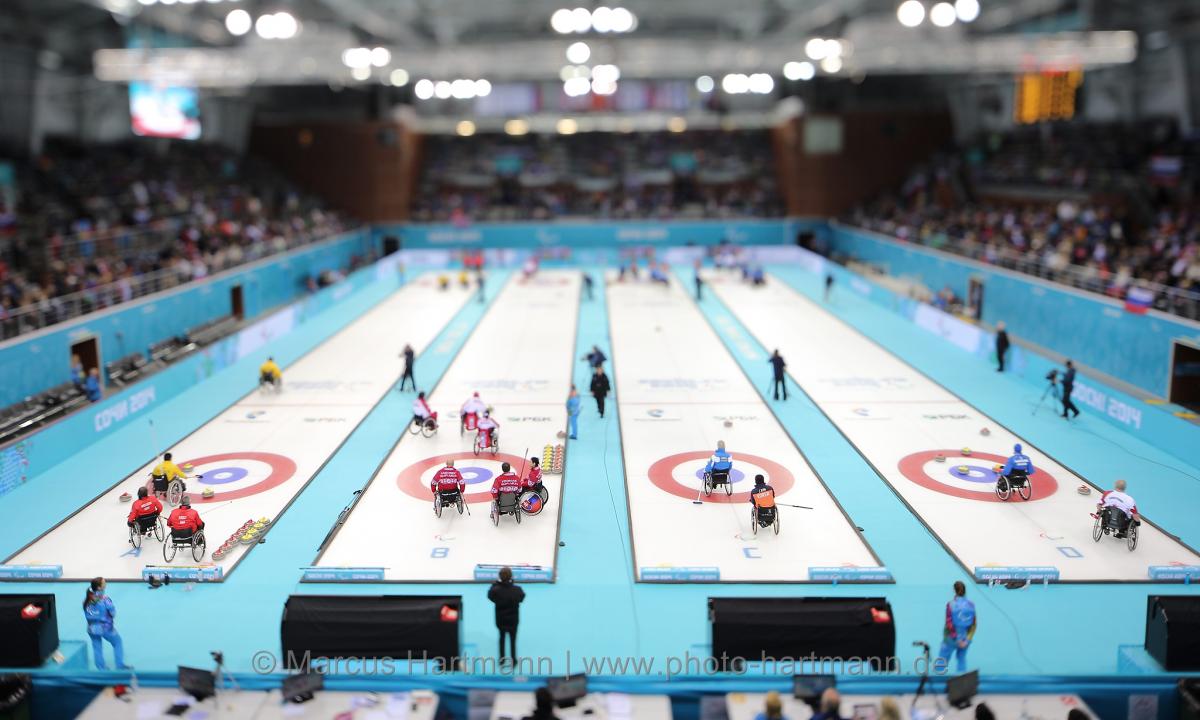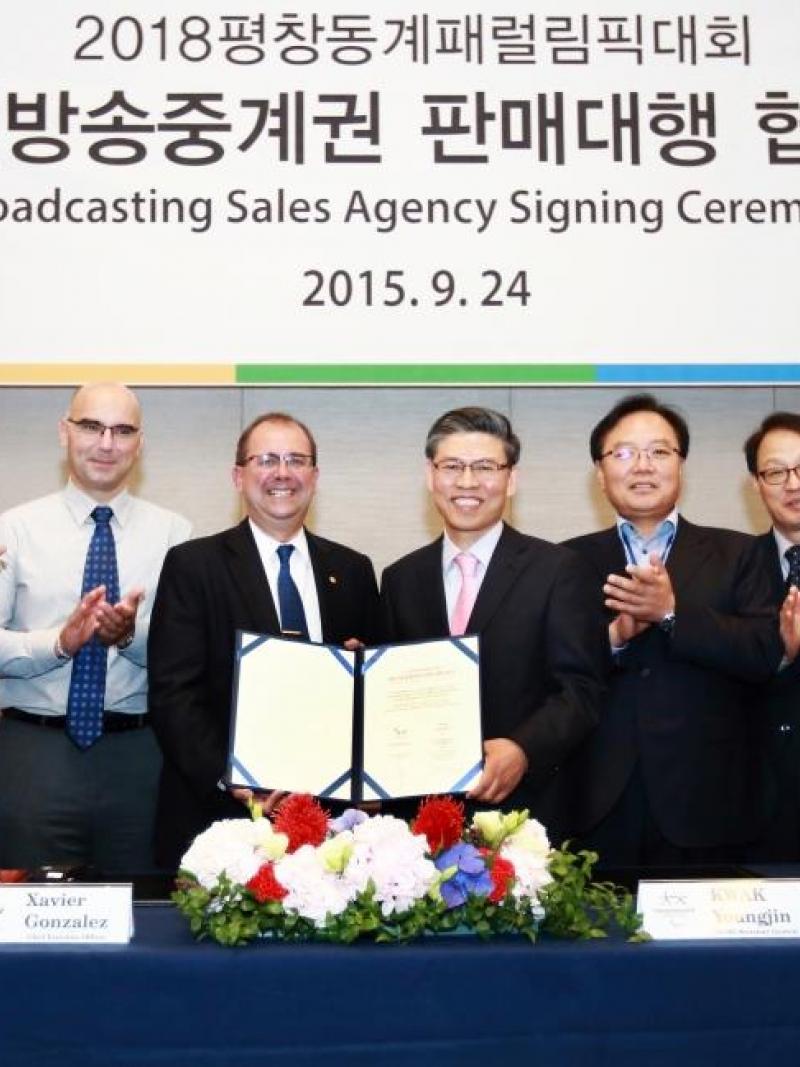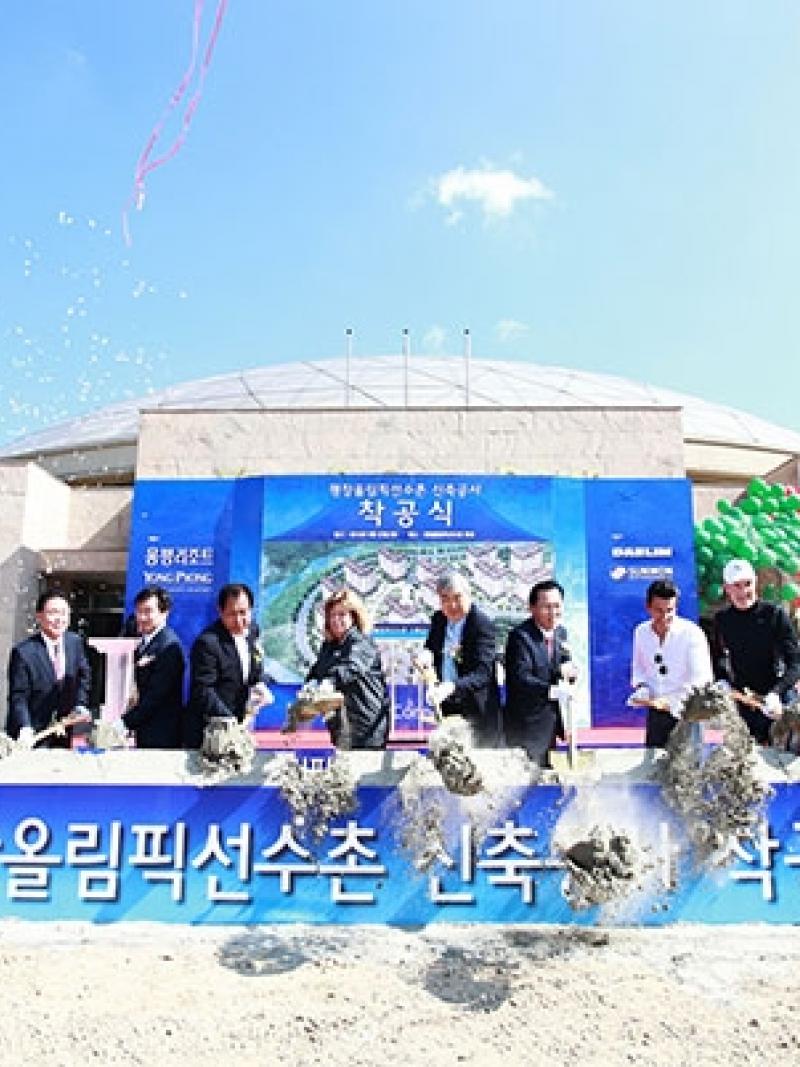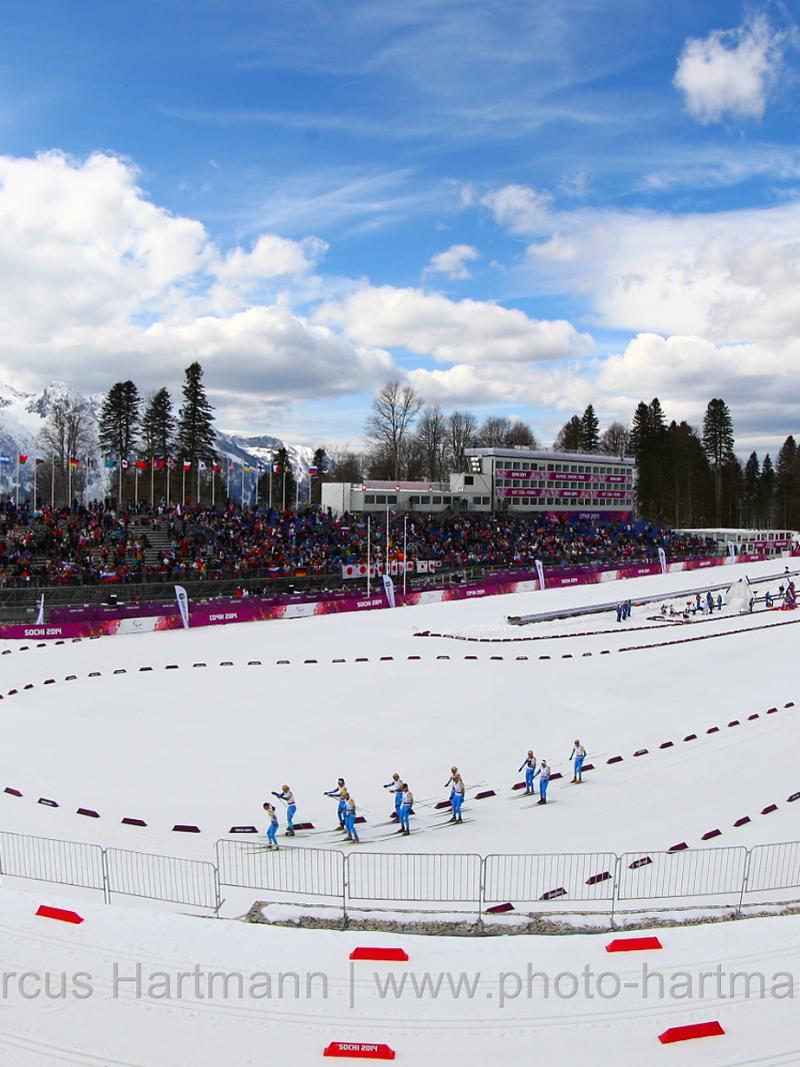Wheelchair curling broadens its horizons
New national teams now in Romania, Hungary, Israel and Slovenia following training camps supported by the Agitos Foundation. 08 Oct 2015
Athletes compete in the Sochi 2014 Paralympic Winter Games wheelchair curling competition.
Curling has successfully been introduced in two new countries – Romania and Hungary – following a pair of training camps supported by the development arm of the International Paralympic Committee, the Agitos Foundation. As a result, four new national teams were created.
The camps were held in Bratislava, Slovakia, in 2014 and 2015, and included trainers from Canada, Denmark and Scotland. They brought together 32 male and female players and coaches from Hungary, Israel, Romania, Slovenia – all four which now have national teams – and Slovakia. As the only country with a national curling team during the camps, Slovakia served as mentors.
The camps were organised by the Romanian National Paralympic Committee (NPC) and Romanian Curling Federation, with expertise provided by the World Curling Federation, as part of the Agitos Foundation’s 2014 Grant Support Programme.
The participants were taught the basic regulations of the game, strategies, techniques and history, and were advised how to act in each situation. The countries also had the chance to play each other and benefitted from education and development for the coaches of each team.
Two international trainers, Canada’s Chris Bowden and Denmark’s Per Christensen, and internationally renowned player and Paralympian, Great Britain’s Michael McCreadie, guided the sessions.
“I am tremendously excited to be involved as part of the coaching team of this Agitos Project, being able to put something back into this sport that I love,” said McCreadie.
Bowden was similarly proud to have been part of the process: “It’s an honour to be teaching countries the sport of curling here in Bratislava. To be able to deal with the challenges of interactive communication has been a wonderful opportunity.”
Christensen added: “It is a good training camp because it gives the coaches the possibility to impart their knowledge and the participants to benefit from it amid the pleasure of enjoying the art of curling and to have great fun.”
Sally Wood-Lamont, President of NPC Romania, said: “I am extremely pleased with the results of this Agitos project – I have received excellent feedback from everyone who took part in it and the end result is that it was a really valuable initiative in a new winter sport for the countries concerned.”
Dr. Patrícia Anna Horváth, Hungarian National Paralympic Committee Sport Manager, thanked the organisers: “We are on the way now to establish this new sport at home because of your fantastic idea and hard work. In one word, it was perfect. Thank you very much!”
The camps were the first step for the development of wheelchair curling in each country, and contribute to the sport’s development plans in the lead-up to the PyeongChang 2018 Paralympic Winter Games.
The teams will now go on to compete in the 2015-16 season at World Curling Federation competitions in order to gain more experience.







